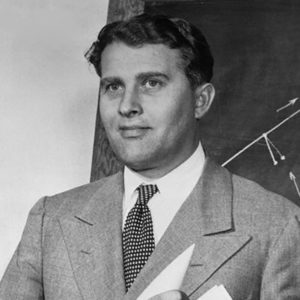This month, the 50th anniversary of the Apollo 11 moon landing, will feature many stories of how the American space program overtook the Soviets and accomplished President John F. Kennedy’s goal of landing a man on the moon before 1970. No science fiction writer could have dreamed up some of those stories, including the critical role of Nazi scientists to the success of NASA.
But has the public, accustomed to computer graphic special effects and fictional space dramas like the “Star Wars” and “Star Trek” franchises, become jaded about real-life space drama?
Many years ago, after the final Apollo flight, a friend told me that when it comes to outer space, fiction can trump fact. He was a Harvard undergraduate in charge of weekend campus lectures, featuring prominent news figures and celebrities. The original “Star Trek” television series had been canceled years before, but its creator, Gene Roddenberry, retained a large cult following among Harvard students. My friend booked him for a Saturday night lecture, knowing he would be a big draw.
To complete the bill, he needed a second speaker. With a sense of puckishness and perhaps seeking to needle his fanboy classmates, he contacted someone to serve as a counterpoint to a fictional space expert: a real expert on rockets and space. And not just any expert, but the most brilliant rocket physicist in the world, retired NASA scientist Wernher von Braun, who accepted his invitation.
Von Braun’s personal history was, to say the least, problematic. Prior to coming to America from Germany, he was a Nazi, and not simply any Nazi but part of the notorious SS. As Adolf Hitler’s leading rocket scientist during World War II, he was the crucial figure in the development of the V2 rocket, which nearly destroyed London. Constructed with slave labor from Nazi-conquered territories, the V2 is considered the forerunner of today’s cruise missile.
At the end of the war, von Braun came to America as part of Operation Paperclip, a top-secret American program that brought the best German scientists to the United States to develop the American Cold War space program and to keep the scientists out of Soviet hands. American officials running Operation Paperclip were officially prevented from recruiting Nazi Party members, but von Braun was so valuable the military made an exception.
Once in America, von Braun became an American citizen and fulfilled the promise of his handlers, becoming the director of NASA’s Marshall Space Flight Center and chief architect of the Saturn V launch vehicle, instrumental to the American lunar landing mission. No single person was more responsible for sending American astronauts to the moon than Wernher von Braun.
At Harvard, there was no shortage of criticism and jokes about his Nazi past and political opportunism, none more devastating than a parody song by the well-known Harvard satirist Tom Lehrer, titled “Wernher von Braun”:
“Don’t say that he’s hypocritical, say rather that he’s apolitical.
“Once the rockets are up, who cares where they come down?
“That’s not my department, says Wernher von Braun.
“You too may be a big hero, once you’ve learned to count backwards to zero.
“In German or in English I know how to count down,
“And I’m learning Chinese, says Wernher von Braun.”
The night of the lecture brought a huge turnout. My friend fretted about protests to von Braun’s appearance outside the lecture hall, but none materialized.
Gene Roddenberry arrived before von Braun and spoke first. With “Star Trek” anecdotes about Shatner and Spock, Roddenberry mesmerized the crowd for nearly an hour. Midway through his talk, von Braun arrived backstage in the waiting room, impeccably dressed and still handsome in his mid-60s. He exchanged pleasantries with my friend, who was somewhat awestruck meeting such a historical figure, Nazi background notwithstanding.
Roddenberry left quickly, and von Braun took the stage to an overflow crowd of animated students still buzzing over the television writer’s presentation. Immediately after he reached the lectern and began speaking, students left in droves. He truncated his remarks, but even so, by the time he finished the auditorium was nearly empty.
The world-renowned rocket scientist trudged offstage disconsolately. Chagrined, his only solace was from my friend waiting in the wings. Von Braun may have thought this was the final indication that, despite his scientific accomplishments, he would forever be a prisoner of his past. He sat quietly — a defeated, abject figure — then wondered aloud if the student exodus was because of his Nazi history.
My friend offered him a cup of coffee and some reassurance. “I don’t think that was the reason so many people left.”
“Why then?” asked von Braun.
“I think they just came to hear the first speaker.”
Von Braun turned curious, “Who was he?”
“Gene Roddenberry.”
It was immediately apparent von Braun had never heard of “Star Trek” or its creator. He asked my friend, “What does this Roddenberry do?’”
Not wishing to add insult to the injured dignity of the elderly scientist, my friend smiled wanly and answered, “He writes for television.”
Von Braun left and drifted out by himself into the chilly Cambridge night, dumbfounded by a demonstration that reality was no match for fantasy when the subject is space, the final frontier.

